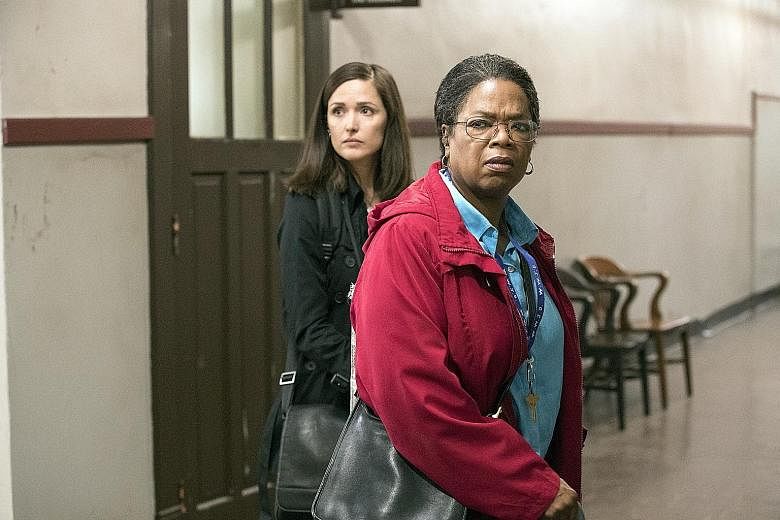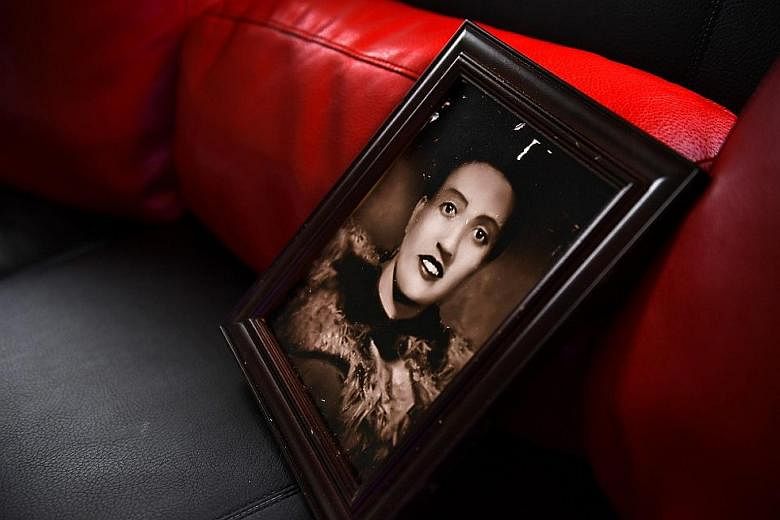Spend a few minutes with Oprah Winfrey and you will understand how she gets so many to open up and cry on her talk show.
In person, the billionaire media mogul and former host of The Oprah Winfrey Show (1986-2011) displays an uncanny ability to connect with those she has just met, radiating a warm inquisitiveness and magnetism that quickly win you over.
The 63-year-old works her magic on this reporter and other press as she chats about her new HBO movie, The Immortal Life Of Henrietta Lacks, in New York earlier this month.
While it is usually left to reporters to break the ice, Winfrey instantly puts everyone at ease with jokes and affable small talk.
As she speaks, you somehow forget that she is the woman who turned her top-rated talk show into a cultural phenomenon, forging a media brand that, last year, saw Forbes magazine list her as the second-richest self-made woman in America, with a net worth of US$3.2 billion (S$4.5 billion), after businesswoman Diane Hendricks.
Available on HBO On Demand (StarHub TV Channel 602) and HBO on StarHub Go, her new movie tells the little-known story of Henrietta Lacks, a dying African-American woman whose cervical cancer cells were harvested in 1951 by Johns Hopkins Hospital in Baltimore, Maryland, without her knowledge or consent.
Winfrey plays Lacks' daughter Deborah, who helped science reporter Rebecca Skloot (played by Rose Byrne) piece together her mother's story for Skloot's 2010 book of the same name, which went on to become an award-winning bestseller.
Winfrey hopes that telling the story "will make people ask more questions" about what happens to their own tissue. "Because people can still take your cells without your knowledge if they don't put your name on it."
Dubbed the HeLa cells, Lacks' cells were the first "immortal" human cell line to be successfully grown in a petri dish. Their rare ability to multiply outside a human body saw them being sold to laboratories worldwide for experimentation, enabling major medical breakthroughs such as the polio vaccine, in-vitro fertilisation, cloning and chemotherapy.
The Lacks family were kept in the dark about this for years and still have not earned a cent from the cells, which remain widely used today.
Winfrey believes Lacks' story is a cautionary tale for anyone whose cells might be collected during medical treatment, not just African Americans, although Lacks' case was part of a broader pattern of medical abuse suffered by blacks at the time.
"After seeing this film, you would be like, 'I wonder what my doctor is doing', and go, 'Hey, when I go in for surgery, are you going to be taking some of my cells?' I think it calls for you to question more."
One of the most remarkable things about the HeLa cells is the fact that their provenance was unknown for so long. This was partly deliberate - a researcher who had grown the cells had lied and said they came from a woman named Helen Lane.
"How is it that I am a black woman - and one who thought I knew pretty much everything about African-American history - and I had never even heard of this woman?" Winfrey says.
The way the truth came out, which is documented in the film, carries a lesson about the value of listening to people's stories, she adds.
"It says to me that everybody's story is important. I spent years speaking to people on a daily basis about their stories and one of the great lessons I came away with from The Oprah Winfrey Show is that there is not a human being alive whose story doesn't hold value. Not one.
"And that was the great success of the show - that everybody who sat in the chair, I held their story in the highest esteem in that particular moment and valued hearing what that was and who they came to be."
Despite plaudits for her performances in films such as The Butler (2013) and The Color Purple (1985) - The Color Purple earning her Oscar and Golden Globe nominations for Best Supporting Actress - she has done only seven films and admits she is often reluctant to turn her hand to acting.
"I don't normally put myself in situations where I am out of control and don't know what I am doing," explains the star, who is in a relationship with businessman Stedman Graham, 66.
It was also daunting to play the late Deborah Lacks, a manic depressive who had a fractious relationship with her family and Skloot.
"I was afraid because it's a very challenging role. Everybody on set is better than I am because they've done it longer. That's the fear - that you're not going to measure up."
Given the racially charged themes of the film, Winfrey is invariably asked if she feels the United States still has a long way to go before achieving racial equality.
"We do. We're human beings on a planet where race is a big issue. Race is what we have to deal with in this country.
"I choose, just as the person I am, to focus on my strengths and what is strong and positive. Yes, many new strides need to happen in terms of race.
"But look at black me, sitting here now with you talking about this story of an African-American woman who nobody even knew about, and it's going to be on HBO throughout the world. That, to me, is great progress. That feels like victory to me."
•The Immortal Life Of Henrietta Lacks is available on HBO On Demand (StarHub TV Channel 602) and HBO on StarHub Go.


